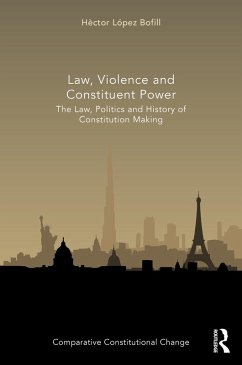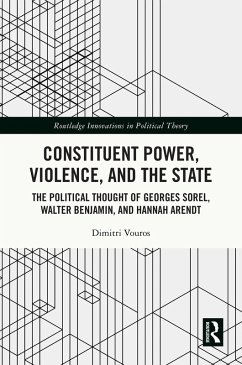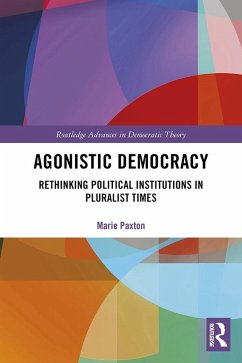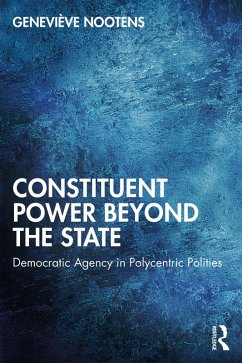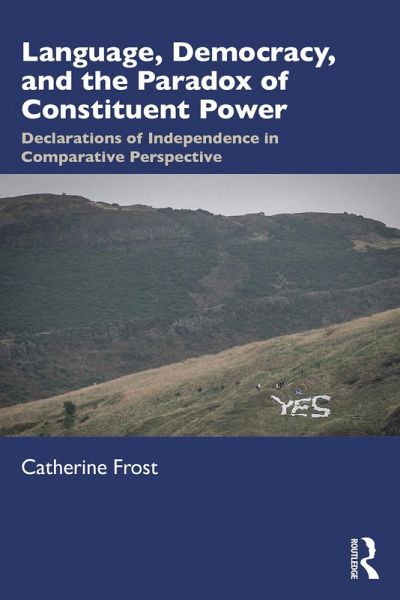
Language, Democracy, and the Paradox of Constituent Power (eBook, ePUB)
Declarations of Independence in Comparative Perspective
Versandkostenfrei!
Sofort per Download lieferbar
39,95 €
inkl. MwSt.
Weitere Ausgaben:

PAYBACK Punkte
20 °P sammeln!
In this book, Catherine Frost uses evidence and case studies to offer a re-examination of declarations of independence and the language that comprises such documents. Considered as a quintessential form of founding speech in the modern era, declarations of independence are however poorly understood as a form of expression, and no one can completely account for how they work.Beginning with the founding speech in the American Declaration, Frost uses insights drawn from unexpected or unlikely forms of founding in cases like Ireland and Canada to reconsider the role of time and loss in how such sp...
In this book, Catherine Frost uses evidence and case studies to offer a re-examination of declarations of independence and the language that comprises such documents. Considered as a quintessential form of founding speech in the modern era, declarations of independence are however poorly understood as a form of expression, and no one can completely account for how they work.
Beginning with the founding speech in the American Declaration, Frost uses insights drawn from unexpected or unlikely forms of founding in cases like Ireland and Canada to reconsider the role of time and loss in how such speech is framed. She brings the discussion up to date by looking at recent debates in Scotland, where an undeclared declaration of independence overshadows contemporary politics. Drawing on the work of Hannah Arendt and using a contextualist, comparative theory method, Frost demonstrates that the capacity for renewal through speech arises in aspects of language that operate beyond conventional performativity.
Language, Democracy, and the Paradox of Constituent Power is an excellent resource for researchers and students of political theory, democratic theory, law, constitutionalism, and political history.
Beginning with the founding speech in the American Declaration, Frost uses insights drawn from unexpected or unlikely forms of founding in cases like Ireland and Canada to reconsider the role of time and loss in how such speech is framed. She brings the discussion up to date by looking at recent debates in Scotland, where an undeclared declaration of independence overshadows contemporary politics. Drawing on the work of Hannah Arendt and using a contextualist, comparative theory method, Frost demonstrates that the capacity for renewal through speech arises in aspects of language that operate beyond conventional performativity.
Language, Democracy, and the Paradox of Constituent Power is an excellent resource for researchers and students of political theory, democratic theory, law, constitutionalism, and political history.
Dieser Download kann aus rechtlichen Gründen nur mit Rechnungsadresse in A, B, BG, CY, CZ, D, DK, EW, E, FIN, F, GR, HR, H, IRL, I, LT, L, LR, M, NL, PL, P, R, S, SLO, SK ausgeliefert werden.





